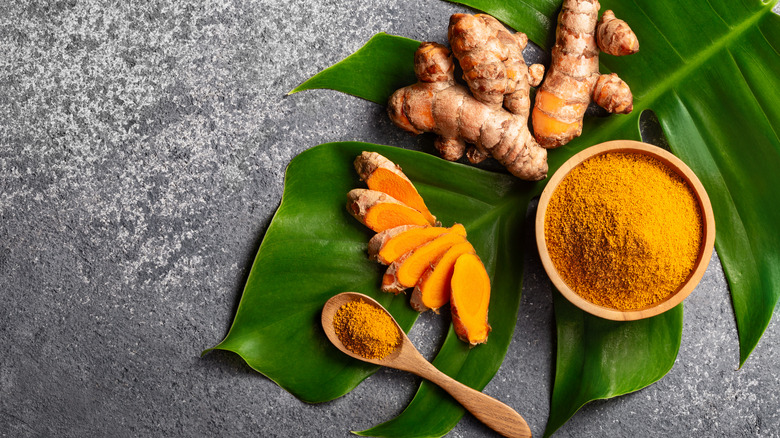Why You Should Think Twice Before Taking Blood Thinners
Blood thinners are a fairly common form of medication that have existed since the mid-1900s, per Drug Watch. Although the name implies thinning of blood, the medications actually work by preventing the formation of blood clots in our bodies.
Taken either orally or injected into the bloodstream, blood thinners are prescribed to people with certain health conditions that make them vulnerable to the adverse effects of blood clotting, according to Stop The Clot. These conditions could be existing ones like heart disease, lung-related issues, strokes, etc. Blood thinners are also prescribed to persons after specific types of surgery.
Often considered life-saving medication, blood thinners are consumed by over 8 million people in the U.S., per Cision PR Newswire. There are two main types of blood thinners – anticoagulants and antiplatelet drugs — and they work by averting blood clots and also by preventing existing blood clots from becoming bigger, per Drug Watch.
Even though blood thinners are recommended as one means of keeping your heart in a healthy condition, they are not without side effects.
Heavy bleeding is one of the main side effects of taking blood thinners
Bleeding is the number one side effect — and the most potentially life-threatening one — of taking blood thinners, according to Everyday Health. Dr. Elliott R. Haut from Johns Hopkins Medicine in Baltimore explained that taking blood thinners places a person at a much greater risk when it comes to minor wounds. "A minor head injury can be devastating because the body's normal reaction to stop bleeding doesn't occur," he shared.
Unlike with natural blood, which has the ability to clot when there's a wound or injury, the blood in someone who's taking blood thinners loses its ability to clot and stop bleeding on its own, making that person vulnerable to excessive amounts of bleeding, according to Coastal Detox. While the side effect could be mild in some cases, they could also be as dangerous as strokes and internal bleeding (via Drug Watch).
A study done by the National Blood Clot Alliance (NBCA) in 2020 noted that 55% of Americans over the age of 18 who are on blood thinners live in fear of dying from excessive bleeding and 73% are more guarded going through their everyday activities, per Cision PR Newswire. Undeniably, this has affected their quality of life, as fear dictates activities like travel, experiencing new things, working out, and even brushing their teeth.
Are there safer ways to prevent blood clotting?
Although there are recommended methods of working with your physician to work around the risks of blood thinners, a safer approach might be consuming natural vitamins — Vitamins C and E — which help prevent blood clotting, according to Coastal Detox. Natural blood thinners perform the same function of disrupting your body's ability to clump together (via Medical News Today), although it is advisable that you discuss this approach with your doctors before you make any changes.
Curcumin, an ingredient found in turmeric, is known to have anti-inflammatory and blood-thinning properties, and so do ginger, garlic, and cayenne peppers. A 2020 study published in Diabetes and Vascular Disease Research possibly links melatonin with the prevention of blood clotting as well.
Most medications have risks associated with consuming them (even Benadryl, which has hidden side-effects). That's why it's important to think twice and maybe spend some time discussing these risks and potential workarounds with your doctor before deciding to take them.


